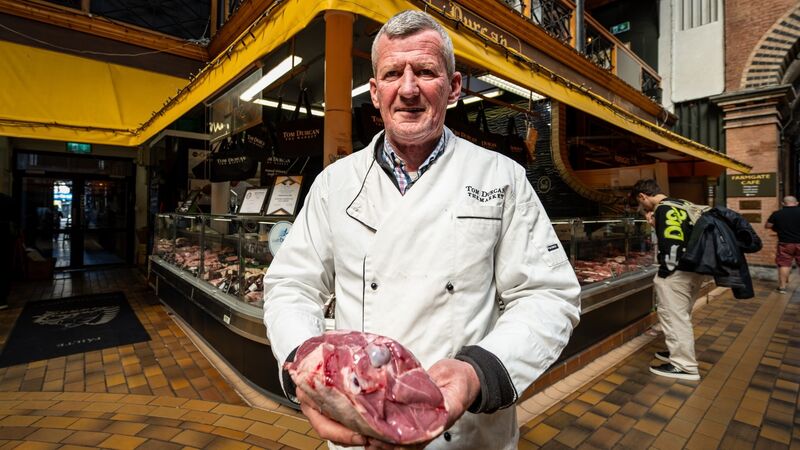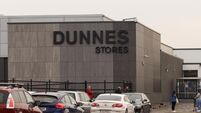Spring lamb costs up to €100 as butchers say Easter tradition may be priced out

Butcher Tom Durcan pictured holding a leg of lamb in front of his stall in Cork's English Market. Picture: Chani Anderson
Lamb may be off the table this Easter and beyond for many families due to soaring costs, according to butchers.
A number of businesses including butcher shops and restaurants have ceased offering lamb, an Easter tradition, in recent weeks.














